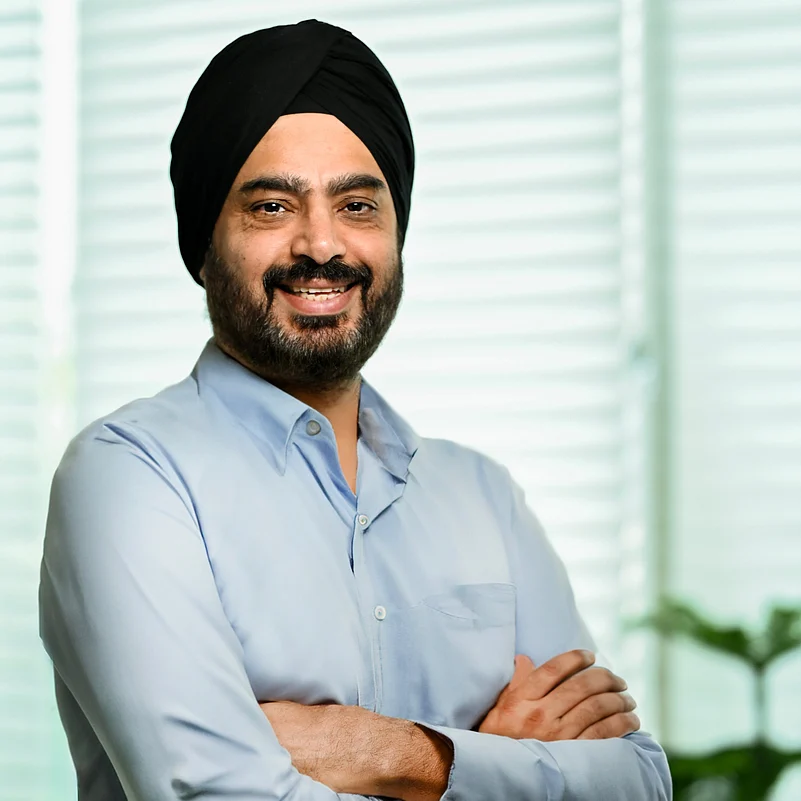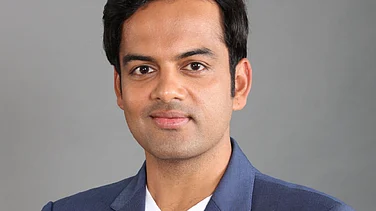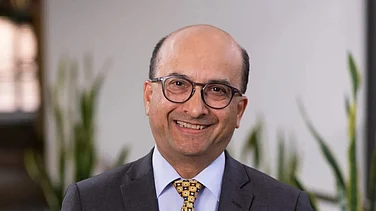Indian fintech is on a rollercoaster ride. Estimated at around $110 billion, it is projected to grow at 31% compound annual growth rate (CAGR) to reach $420 billion by 2029. Yet challenges are plenty.
Payments, Indian fintech’s primary play, does not make enough profits. The central bank has been breathing down the necks of fintech firms for not following through on regulations. And interest of private equity players and venture capital firms is on the wane.
MobiKwik is one of the players going through the motions of the fintech rollercoaster. Founded in 2009 by husband-wife duo Bipin Preet Singh and Upasana Taku, the company boasts of 156 million registered users till April 2024.
In an interview with Outlook Business, MobiKwik’s Singh describes the challenges facing fintech, his plans to take the company public and how the business must pivot to stay profitable in the long run.
An RBI report says PE and VC investment is at a two-year low. Why is fintech grappling with a funding crunch?
I don’t believe all funding cycles are related to the health of business. A lot of investments were made by VCs not just in fintech but in all types of tech start-ups in the post-Covid world at crazy valuations. It is not as if fintech firms don’t have a clear business model.
Fintech firms do have a very clear business model. In fact, the health of fintech firms is really at its best. We just reported our first profitable year. Businesses are maturing and the market expects companies to build more mature and profitable businesses.
Once that happens, there will be those crazy investments again. Maybe this time it will happen more in the public markets and the capital markets instead of the private markets.
Several fintech firms have gone public in the past few years. When can we expect MobiKwik to make an initial public offer (IPO)? Do you have any private investment lined up?
We filed for an IPO in January and are currently waiting for approval from Sebi [Securities and Exchange Board of India]. Once we receive the approval we will go ahead. We hope for a very good reception.
As of now, we cannot obtain any private investment because we have already filed for an IPO. We can, however, explore some pre-IPOs, but we are not contemplating any such investments.
Despite RBI’s crackdown on the mobile wallets business, MobiKwik’s prepaid payment instrument (PPI) wallets have seen their market share rise from 9.3% in January to 12.11% in May. How did you manage that?
My biggest learning has been to take regulations and compliances seriously when we start. We often fail to do that because we come from a technology background and we think we should make whatever we can and give it to customers if it makes sense.
But there is a reason why regulators come up with different kinds of circulars and regulations. It is to make sure that the ecosystem is stable and the customer is protected.
We figured out many years ago that we cannot work only as a tech company. We have to work as a ‘fin’-tech company and put the ‘fin’ before ‘tech’. If you have a top-down culture of following guidelines then everyone does the right thing automatically. If you do the right thing you can sleep peacefully at night.
Digital payments have very thin margins of profit and are volatile—How are you planning to tackle these?
Payment has always had a thin margin. In UPI [unified payments interface] the payment margin is technically zero. The government must wake up now because the industry has become big. The cost of running digital payments has become high.
I expect income will not go down anymore. It will either stabilise or rise. But beyond payments, one must also build a cross-sell business. Payment is great for customer acquisition but you must sell other financial products to make good profits.
MobiKwik is going to launch deposits, which is very unusual for fintech firms which mostly focus on credit. What is the thinking behind this decision?
We see savings as a very important part of our business proposition. This is because a large section of the Indian population keeps money in bank accounts or fixed deposits (FDs). We want to bring choice and transparency to customers.
Imagine being able to choose which bank or non-banking financial company’s (NBFC) FD you want to invest in based on returns and safety. That’s the ecosystem we are building at MobiKwik.
Indians are not only into mutual funds. We are trying innovative products like FDs, digital gold, peer-to-peer investments.
The RBI has recently come up with Unified Lending Interface (ULI) — a tech platform for loans along the lines of UPI. How is MobiKwik going to integrate ULI in its systems?
Aside from payments, which is our oldest and largest business, the other business we have built over the past few years is digital lending. We saw so many people who had [access to] digital payments but did not have access to credit, and found an opportunity.
We partnered with NBFCs and banks to provide access to microcredit through products like ‘buy now pay later’, personal loans and merchant loans.
ULI is a phenomenal initiative where access to capital as well as to lending will be standardised. Like UPI, I expect that with ULI a simplicity and clarity will emerge on how digital lending, especially micro lending, could be done to the last mile.




























